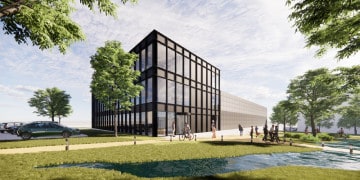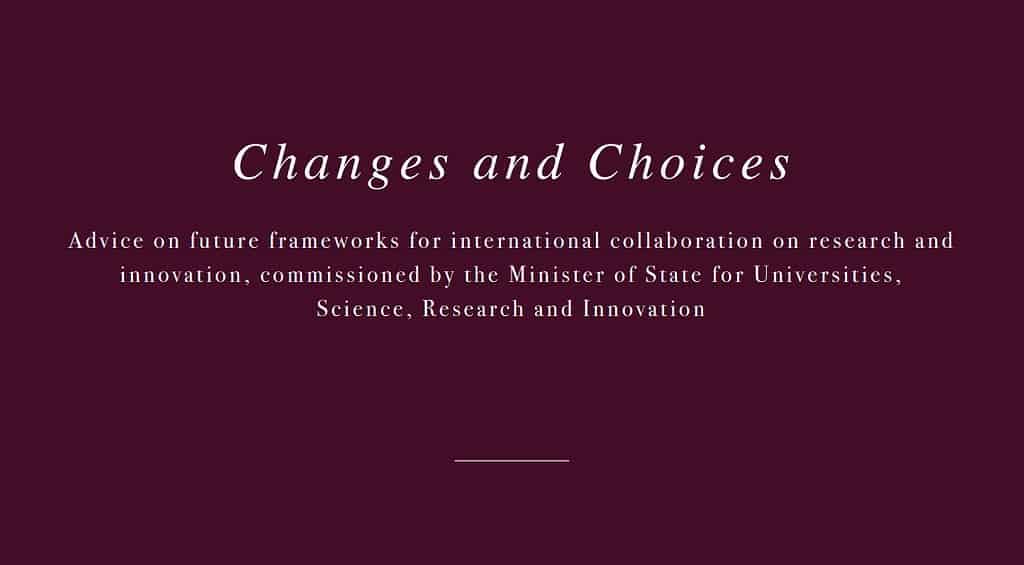Eleanor Beal, Senior Policy Adviser at the Royal Society, explains the value of the Future Partnership Project and how to input.
A vision for the future of UK and EU science
05 Dec 2017
The Royal Society has kicked off a joint project with the Wellcome Trust that will convene UK and EU science leaders to develop a shared vision for an ambitious, close and achievable future agreement on research and innovation.
From our work across Europe since the UK voted to leave the EU, it has been clear that researchers in the UK and the EU want to continue to be able to work together post-Brexit. The Society and the Wellcome Trust are working together to turn this will into a clear statement of shared ambition from our research communities.
The Future Partnership Project aims to create a vision that can be communicated clearly and consistently to inform decision makers across Europe over the coming months.
Key decisions for European science
Both the UK government and the European Commission have been positive about their aspiration for future engagement between the UK and the EU on research and innovation, but they are yet to get down to the business of discussing what this might look like. The UK’s recent Brexit policy paper on collaboration on science and innovation stated that “the UK will seek to agree a far-reaching science and innovation agreement with the EU that establishes a framework for future collaboration.”
At the same time, the European Commission is developing its plans for Framework Programme 9 (FP9), the successor to Horizon 2020. A recent report on FP9—Pascal Lamy’s LAB-FAB-APP—recommended that “full and continued engagement with the UK within the post-2020 EU R&I programme remains an obvious win-win for the UK and the EU”.
The Future Partnership Project
To develop a vision through the Future Partnership Project we are seeking views from across UK and EU research communities, including through a consultation on the success factors for international partnerships. We will also be developing a synthesis of evidence and analyses on the existing UK-EU relationship on science and the implications of Brexit, for example drawing in our own commissioned work on the role of EU funding in the UK.
We plan to hold two consultative dinners in December 2017, in Brussels and London, with representatives from research communities in the UK and the EU. The vision itself will be agreed at a meeting of UK and EU science leaders in early 2018, so that it can then be disseminated widely as the Brexit negotiations enter their second phase and discussions on FP9 progress.
Achieving the best possible outcome
By working together, the EU and UK have achieved many research breakthroughs; helping bring medicines to vulnerable populations, accelerating the production of nanoparticles and biotechnologies and preparing hyper-efficient aircraft for flight testing.
Brexit presents a challenge to continuing to reap the benefits of this partnership. Through this project we hope to support the best possible outcome for research and innovation and to lay a solid foundation for continued, close and productive partnership. We hope that the Future Partnership Project can support rapid progression to an agreement on this vital and mutually-beneficial area and lay the groundwork for implementation.
This article was first published on the Royal Society In Verba blog.
Related articles

Tamsin Mann, Director of Policy & Communications at PraxisAuril, on the importance of understanding and unlocking the full potential of knowledge exchange.

Sarah Slaven, Interim Managing Director of Business Durham and the North East Technology Park, on what makes a successful science park.

Zoe Angel, Research Fellow at The Patrick G Johnston Centre for Cancer Research at Queen’s University Belfast, outlines how Northern Ireland can capitalise upon the UK Government’s ‘Place’ agenda

Sir Adrian Smith, Institute Director and Chief Executive of The Alan Turing Institute, and Graeme Reid, Professor of Science and Research Policy at UCL, set out the findings from their new independent report on international partnership opportunities for UK research and innovation